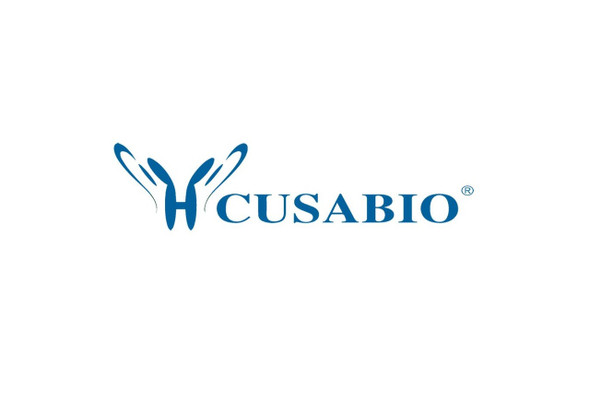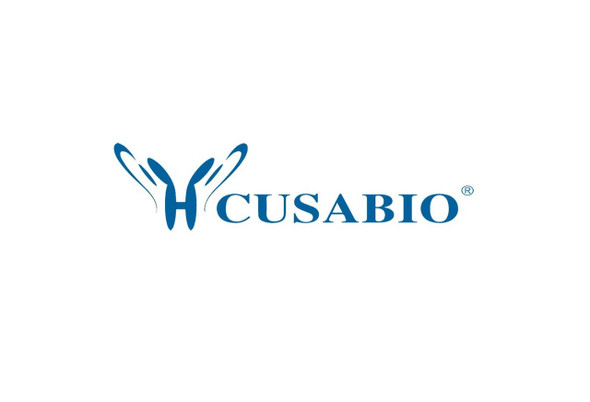Cusabio Virus & Bacteria Recombinants
Recombinant Human rhinovirus A serotype 89 Genome polyprotein, partial | CSB-EP362073HQDb0
- SKU:
- CSB-EP362073HQDb0
- Availability:
- 3 - 7 Working Days
Description
Recombinant Human rhinovirus A serotype 89 Genome polyprotein, partial | CSB-EP362073HQDb0 | Cusabio
Alternative Name(s): Genome polyprotein [Cleaved into: P1; Capsid protein VP0; VP4-VP2); Capsid protein VP4; P1A; Virion protein 4); Capsid protein VP2; P1B; Virion protein 2); Capsid protein VP3; P1C; Virion protein 3); Capsid protein VP1; P1D; Virion protein 1); P2; Protease 2A; P2A; EC 3.4.22.29; Picornain 2A; Protein 2A); Protein 2B; P2B); Protein 2C; P2C; EC 3.6.1.15); P3; Protein 3AB; Protein 3A; P3A); Viral protein genome-linked; VPg; Protein 3B; P3B); Protein 3CD; EC 3.4.22.28); Protease 3C; EC 3.4.22.28; Picornain 3C; P3C); RNA-directed RNA polymerase; RdRp; EC 2.7.7.48; 3D polymerase; 3Dpol; Protein 3D; 3D)]
Gene Names: N/A
Research Areas: Others
Organism: Human rhinovirus A serotype 89 (strain 41467-Gallo) (HRV-89)
AA Sequence: NPVENYIDSVLNEVLVVPNIQPSTSVSSHAAPALDAAETGHTSSVQPEDMIETRYVITDQTRDETSIESFLGRSGCIAMIEFNTSSDKTEHDKIGKGFKTWKVSLQEMAQIRRKYELFTYTRFDSEITIVTAAAAQGNDSGHIVLQFMYVPPGAPVPEKRDDYTWQSGTNASVFWQEGQPYPRFTIPFMSIASAYYMFYDGYDGDSAASKYGSVVTNDMGTICVRIVTSNQKHDSNIVCRIYHKAKHIKAWCPRPPRAVAYQHTHSTNYIPSNGEATTQIKTRPDVFTVTNV
Source: E.coli
Tag Info: N-terminal 10xHis-tagged
Expression Region: 575-866aa
Sequence Info: Partial
MW: 38.1 kDa
Purity: Greater than 85% as determined by SDS-PAGE.
Relevance: Capsid protein VP1: Forms an icosahedral capsid of pseudo T=3 symmetry with capsid proteins VP2 and VP3. The capsid is 300 Angstroms in diameter, composed of 60 copies of each capsid protein and enclosing the viral positive strand RNA genome. Capsid protein VP1 mainly forms the vertices of the capsid. Capsid protein VP1 interacts with host cell receptor to provide virion attachment to target host cells. This attachment induces virion internalization. Tyrosine kinases are probably involved in the entry process. After binding to its receptor, the capsid undergoes conformational changes. Capsid protein VP1 N-terminus (that contains an amphipathic alpha-helix) and capsid protein VP4 are externalized. Together, they shape a pore in the host membrane through which viral genome is translocated to host cell cytoplasm. After genome has been released, the channel shrinks
Reference: "Evolutionary relationships within the human rhinovirus genus: comparison of serotypes 89, 2, and 14." Duechler M., Skern T., Sommergruber W., Neubauer C., Gruendler P., Fogy I., Blaas D., Kuechler E. Proc. Natl. Acad. Sci. U.S.A. 84:2605-2609(1987)
Storage: The shelf life is related to many factors, storage state, buffer ingredients, storage temperature and the stability of the protein itself. Generally, the shelf life of liquid form is 6 months at -20?/-80?. The shelf life of lyophilized form is 12 months at -20?/-80?.
Notes: Repeated freezing and thawing is not recommended. Store working aliquots at 4? for up to one week.
Function: Capsid protein VP1
Involvement in disease:
Subcellular Location: Capsid protein VP0: Virion, Host cytoplasm, SUBCELLULAR LOCATION: Capsid protein VP4: Virion, SUBCELLULAR LOCATION: Capsid protein VP2: Virion, Host cytoplasm, SUBCELLULAR LOCATION: Capsid protein VP3: Virion, Host cytoplasm, SUBCELLULAR LOCATION: Capsid protein VP1: Virion, Host cytoplasm, SUBCELLULAR LOCATION: Protein 2B: Host cytoplasmic vesicle membrane, Peripheral membrane protein, Cytoplasmic side, Note=Probably localizes to the surface of intracellular membrane vesicles that are induced after virus infection as the site for viral RNA replication, These vesicles are derived from the endoplasmic reticulum, SUBCELLULAR LOCATION: Protein 2C: Host cytoplasmic vesicle membrane, Peripheral membrane protein, Cytoplasmic side, Note=Probably localizes to the surface of intracellular membrane vesicles that are induced after virus infection as the site for viral RNA replication, These vesicles are derived from the endoplasmic reticulum, SUBCELLULAR LOCATION: Protein 3A: Host cytoplasmic vesicle membrane, Peripheral membrane protein, Cytoplasmic side, Note=Probably localizes to the surface of intracellular membrane vesicles that are induced after virus infection as the site for viral RNA replication, These vesicles are derived from the endoplasmic reticulum, SUBCELLULAR LOCATION: Protein 3AB: Host cytoplasmic vesicle membrane, Peripheral membrane protein, Cytoplasmic side, Note=Probably localizes to the surface of intracellular membrane vesicles that are induced after virus infection as the site for viral RNA replication, These vesicles are derived from the endoplasmic reticulum, SUBCELLULAR LOCATION: Viral protein genome-linked: Virion, Host cytoplasm, SUBCELLULAR LOCATION: Protease 3C: Host cytoplasm, SUBCELLULAR LOCATION: Protein 3CD: Host cytoplasmic vesicle membrane, Peripheral membrane protein, Cytoplasmic side, Note=Probably localizes to the surface of intracellular membrane vesicles that are induced after virus infection as the site for viral RNA replication, These vesicles are derived from the endoplasmic reticulum, SUBCELLULAR LOCATION: RNA-directed RNA polymerase: Host cytoplasmic vesicle membrane, Peripheral membrane protein, Cytoplasmic side
Protein Families: Picornaviruses polyprotein family
Tissue Specificity:
Paythway:
Form: Liquid or Lyophilized powder
Buffer: If the delivery form is liquid, the default storage buffer is Tris/PBS-based buffer, 5%-50% glycerol. If the delivery form is lyophilized powder, the buffer before lyophilization is Tris/PBS-based buffer, 6% Trehalose, pH 8.0.
Reconstitution: We recommend that this vial be briefly centrifuged prior to opening to bring the contents to the bottom. Please reconstitute protein in deionized sterile water to a concentration of 0.1-1.0 mg/mL.We recommend to add 5-50% of glycerol (final concentration) and aliquot for long-term storage at -20?/-80?. Our default final concentration of glycerol is 50%. Customers could use it as reference.
Uniprot ID: P07210
HGNC Database Link: N/A
UniGene Database Link: N/A
KEGG Database Link: N/A
STRING Database Link: N/A
OMIM Database Link: N/A









